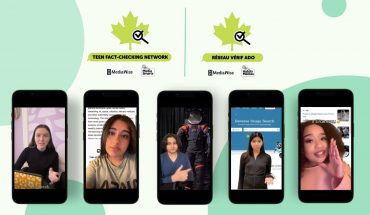According to a recent survey[1] by ServiceNow, a digital workflow company, Gen Zs really value face-to-face interactions and job security. These preferences in the work environment are perhaps different than what I (and others?) might have thought.
 The Gen Z and the Future of Work in Canada study—which polled over 1,500 Canadian employees—revealed Gen Z attitudes about workplace technology, preferred forms of communication and the value these employees bring to the workforce.
The Gen Z and the Future of Work in Canada study—which polled over 1,500 Canadian employees—revealed Gen Z attitudes about workplace technology, preferred forms of communication and the value these employees bring to the workforce.
Specifically, results show that Gen Zs:
- Crave more traditional forms of communication:In fact, three in five (58%) Gen Zs prefer to communicate with their manager in person.
- Desire a digital workplace:It’s no surprise 74% want tech at work to make life as easy as it is at home.
- Feel misunderstood about the value they bring:46% of older generations believe the top skill they can learn from Gen Z workers is how to use digital/social programs.
- Value job security:When considering a job, Gen Z employees value job security, competitive compensation, work-life balance and flexibility the most.
I particularly found it interesting to learn that 84% of Gen Z office workers surveyed prefer to have a long and established career at one workplace.

Marc LeCuyer, General Manager, Canada, ServiceNow.
“Gen Z represents the future of work, and is a growing percentage of the workforce. As companies continue to transform digitally and prepare for the workplace of the future, it’s critical we look at the needs and expectations of the employees who will be most involved in and impacted by this workplace transformation,” says Marc LeCuyer, General Manager, Canada, ServiceNow.
Added LeCuyer, “This age group has the potential to bring really positive change to the way we work. If we want to create the best workplace experiences we have to look beyond what we assume we already know about this generation and dig into what truly drives and motivates them at work.”

In-Person Communication
 It appears that after growing up connected 24/7, Gen Zs value the importance of in-person interactions at work, far more than we might assume.
It appears that after growing up connected 24/7, Gen Zs value the importance of in-person interactions at work, far more than we might assume.
Three in five (58%) Gen Zs prefer to communicate with their manager in person, while only one in three (36%) prefer to communicate by text and one in four (26%) prefer instant message (IM).
This is in contrast to the perceptions of older generations who assume Gen Zs prefer to communicate by  text (62%) and by IM (47%).
text (62%) and by IM (47%).
Beyond Social Media Skills
Less than one third of respondents in older generations think they can learn these things from Gen Zs, while Gen Z feels they can teach older colleagues open-mindedness (53%), creative problem solving (45%) and how to have fun at work (44%).
Close to half of Gen Z survey respondents say the biggest misconceptions older generations have is that they’re self-absorbed (49%), have a short attention span (48%) and are entitled (44%).
Job Longevity
Unlike their millennial counterparts, Gen Z does not want to job hop as the results show that 84% would prefer to have a long and established career at one workplace. However, there’s willingness to leave quickly due to unhappiness (85%) or career advancement (83%).
Gen Zs want practical workplace technology
With a third of our lives spent at work, Gen Zs are eager for technology to help simplify their work lives and recognize that technology can play a more significant role in the workplace. In fact, 74% of Gen Z respondents say that technology at work should be as easy as it is at home.
Gen Z employees want to use mobile-optimized technology at work, far more than they are currently doing so.
62% want to use mobile technology for communication and 55% for collaboration, but only 50% have used it for communication and only 44% have for collaboration.
Despite being digital natives, Gen Z isn’t looking for futuristic technology at work. Only one in five are looking to use artificial or virtual reality (AR and VR) (22%), hold holographic meetings (22%) or use drones at work (20%).
“As we look at how best to leverage technology for the workplace of the future, it’s clear we have a lot to learn from this dynamic generation about how we can improve the working world—far beyond learning how to use social media,” says LeCuyer.
Related:



